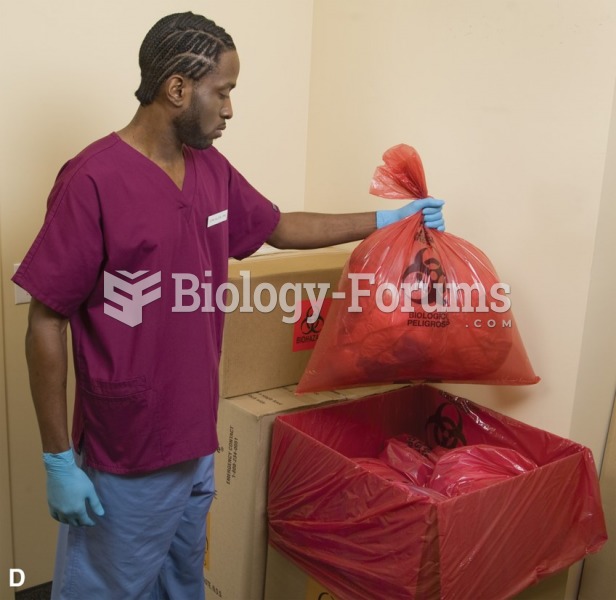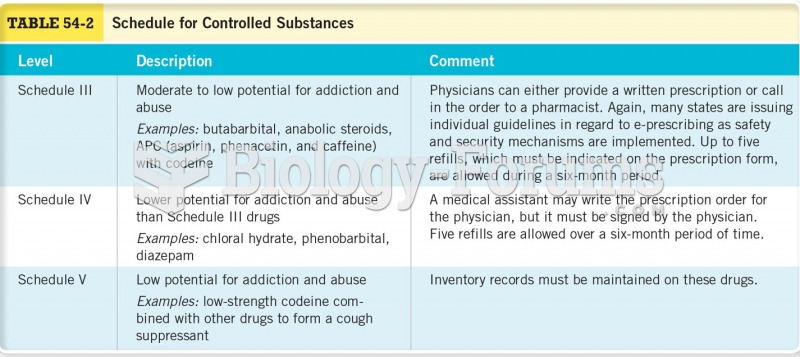|
|
|
Earwax has antimicrobial properties that reduce the viability of bacteria and fungus in the human ear.
People with high total cholesterol have about two times the risk for heart disease as people with ideal levels.
Malaria mortality rates are falling. Increased malaria prevention and control measures have greatly improved these rates. Since 2000, malaria mortality rates have fallen globally by 60% among all age groups, and by 65% among children under age 5.
Though Candida and Aspergillus species are the most common fungal pathogens causing invasive fungal disease in the immunocompromised, infections due to previously uncommon hyaline and dematiaceous filamentous fungi are occurring more often today. Rare fungal infections, once accurately diagnosed, may require surgical debridement, immunotherapy, and newer antifungals used singly or in combination with older antifungals, on a case-by-case basis.
Eat fiber! A diet high in fiber can help lower cholesterol levels by as much as 10%.







